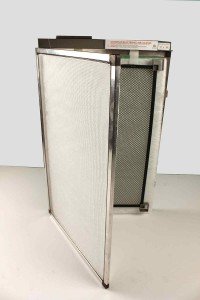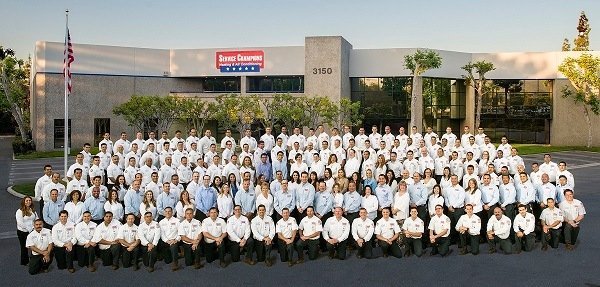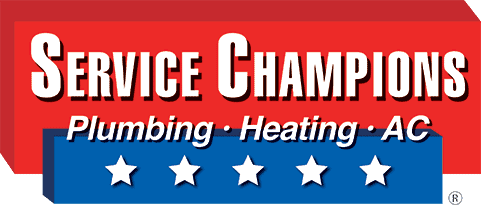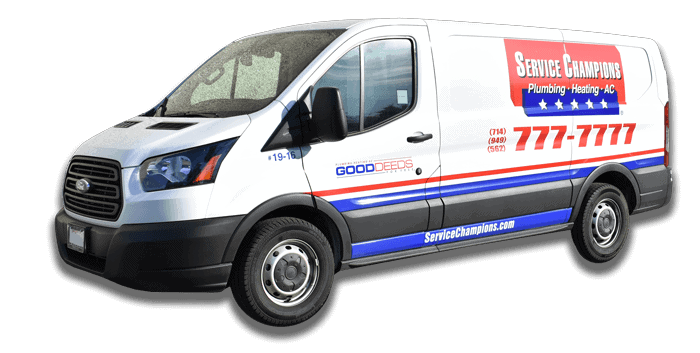Furnace Air Filters
What Type of Furnace Air Filters Work For You?
Today’s HVAC technology has created so many different types of furnace air filters. There are furnace air filters designed to optimize indoor air quality, energy efficiency or airflow. There are furnace air filters of different materials, different strengths and different aims. There is a furnace air filter for every home and every homeowner.
But why are furnace air filters so important? Why should homeowners care?
What Do Furnace Air Filters Do?
Furnace air filters are the filtration system within the heating and cooling unit. Whenever homeowners turn on thermostat for heating and air conditioning, indoor air moves through the air ducts and then through furnace air filters.
Furnace air filters can be made of many varying materials, but they fundamentally work the same. As indoor air passes through furnace air filters, particulate matter—like pollen, hair or bacteria—are trapped within the filter fibers. As a result, on the other side of furnace air filters, homeowners find clean air purified of airborne allergens and pathogens.
This is important for two distinct reasons. First, furnace air filters protect indoor air quality and home comfort. Second, furnace air filters help protect the energy efficiency and service lifespan of the furnace and air conditioner equipment.
If and when homeowners care for their furnace air filters, they have:
· Better indoor air quality
· Improved energy efficiency
· Fewer technical problems with the central air system
· Fewer repairs and damages
· A longer lasting system
· More reliable and consistent heating and air conditioning
What Should Homeowners Know About Furnace Air Filters?
There are a few things homeowners should know about furnace air filters.
First, furnace air filters do need to be replaced. Just how often should they be replaced? This really depends on what type of furnace air filters used and the current household lifestyle.
Homeowners who have pets or multiple people living in one space may need to replace furnace air filters more frequently. In contrast, a home of two people who keep their space tidy by routine may need to change furnace air filters fewer times throughout the year.
On average, furnace air filters last between two to six months.
Second, homeowners should also avoid overusing the same furnace air filters. While this may seem like the cost-effective solution, dirty or old furnace air filters cause more problems for the system and can lead to expensive repairs.
Third, when choosing furnace air filters, homeowners will find a metric called MERV on the label.
MERV stands for minimum efficiency reported value. It measures how efficient furnace air filters are at removing particles from the airflow. The higher the MERV rating, the better furnace air filters are at capturing particles.
Furnace air filters with a higher MERV rating have smaller pores through which airflow passes. As a result, more particles of smaller sizes are captured within the fibers of furnace air filters.
While this sounds attractive, homeowners must keep in mind that furnace air filters with higher MERV ratings result in restricted airflow. Because these furnace air filters catch more product, less air is able to pass sooner rather than later. This means that these furnace air filters use more energy, get expensive and need to be replaced more frequently.
Furnace air filters with a MERV rating between 1 and 4 remove:
· Pollen
· Insect debris
· Dust, dust mites
· Sand
· Textile fibers
Furnace air filters with a MERV rating between 5 and 8 additionally remove:
· Microbiological growth, spores
· Pet and animal dander
· Hair sprays
· Cement dust
· Fabric protectors
Furnace air filters with a MERV rating between 9 and 12 additionally remove:
· Legionella
· Milled flour
· Auto emissions
· Humidifier dust
· Lead dust
Furnace air filters with a MERV rating between 13 and 16 additionally remove:
· Bacteria particles
· Cooling oil
· Smoke, insecticide
· Pigments
· Proplet nuclei (sneeze)
Furnace air filters with a MERV rating between 17 and 20 additionally remove:
· Viruses
· Gasses
· Carbon dust
· Smokes
For the average home, high MERV-rated furnace air filters are not practical or necessary. Homeowners who have concerns over the health and purity of home air should consult an HVAC technician for further guidance.
Fiberglass and Synthetic Furnace Air Filters
Fiberglass and synthetic furnace air filters are popular because they are affordable and disposable. They require minimum maintenance and attention from homeowners. In addition, they do a decent job cleaning indoor air.
Fiberglass and synthetic furnace air filters capture up to 80 percent of large particles like hair or straw. These furnace air filters also capture about 25 percent of smaller particles such as dust, mites, carpet and textile fibers and pollen.
Fiberglass and synthetic furnace air filters are fine for preventing buildup inside the heating and air conditioning system. However, they don’t quite deliver when it comes to elevating indoor air quality for personal health. These furnace air filters cannot catch smaller particles and contaminants like bacteria, gasses and viruses.
Generally, fiberglass and synthetic furnace air filters offer a MERV rating between 1 and 4.
Polyester or Cotton Furnace Air Filters
Polyester furnace air filters are a step above fiberglass and synthetic furnace air filters. These furnace air filters do well for most homeowners’ comfort needs.
Polyester furnace air filters do cost more than synthetic furnace air filters, but they are also far more effective at cleaning indoor air. They catch up to 95 percent of airborne particles including mold spores, microbiological organisms, pollen, irritants and fine dust.
Polyester furnace air filters are the most practical option for the majority of homeowners because they perform well, keep home air clean, deliver peace of mind and last.
Typically, polyester or cotton furnace air filters have MERV rating of 6 or higher.

Electrostatic Furnace Air Filters
Electrostatic furnace air filters are excellent at cleaning indoor air and neutralizing harmful particles. These furnace air filters contain layers of cotton or polyester sheets, enabling multiple sifts.
The material itself creates it own electrostatic charge, pulling particles from the airflow and trapping it within its fibers.
Electrostatic furnace air filters can get expensive, but they work well for homes that need that extra layer of protection and peace of mind. These furnace air filters come in disposable and reusable varieties.
Typically, electrostatic furnace air filters offer a MERV rating between 4 and 10.
Pleated Furnace Air Filters
The term “pleated” refers to the folding pattern of the filter material. These folds or ribs help maximize airflow while still removing as many particles from the home during each heating and cooling cycle.
Homeowners should keep in mind that pleated furnace air filters usually outlast non-pleated furnace air filters. In addition, because these additional folds allow for more filter material per surface area, pleated furnace air filters do a better job of removing more particles per air cycle.
Generally, pleated furnace air filters have a MERV rating of at least 6.
HEPA Furnace Air Filters
HEPA stands for high efficiency particulate air. HEPA furnace air filters offer extremely efficient filtration. They are designed to remove up to 99.97 percent of all airborne particles. While many homeowners are drawn to that factor, HEPA furnace air filters are not the economical or practical choice.
These ultra-efficient furnace air filters are meant for laboratories, airliners and hospitals.

Elevate Your Home with Furnace Air Filters and Service Champions Specialists
Service Champions Heating & Air Conditioning is the only Diamond Certified HVAC provider for Orange and Los Angeles Counties. We lead in heating and cooling solutions for home comfort and indoor air quality.
Thousands of homeowners trust our experienced technicians to deliver exceptional customer service and expert technical care. From start to finish, our team members serve you with total professionalism, attention and expertise. We promise your complete satisfaction.
To meet your HVAC specialist, complete the form below. You can also speak to our friendly call center representatives for more information.

